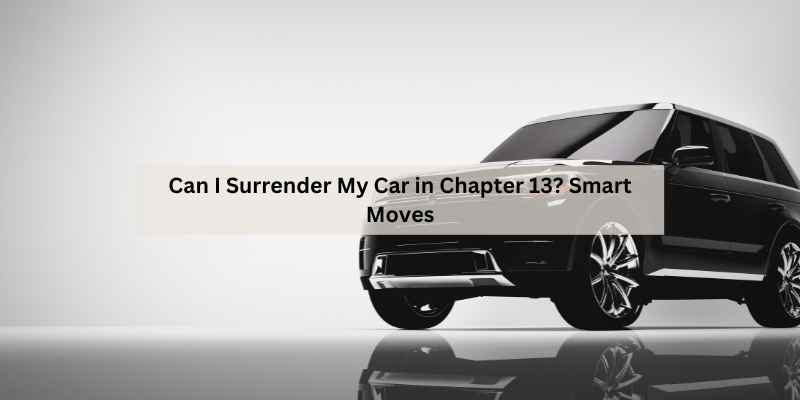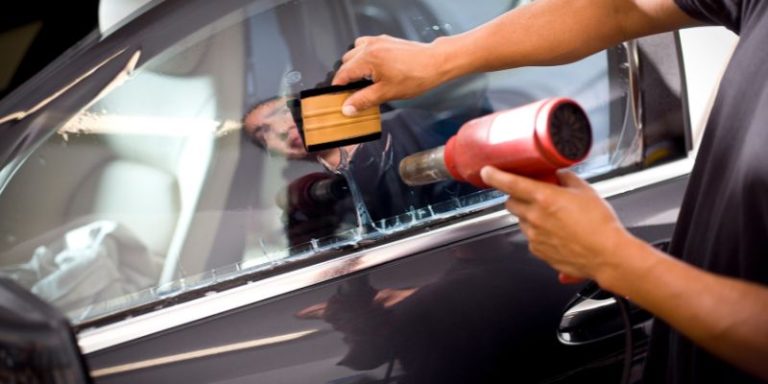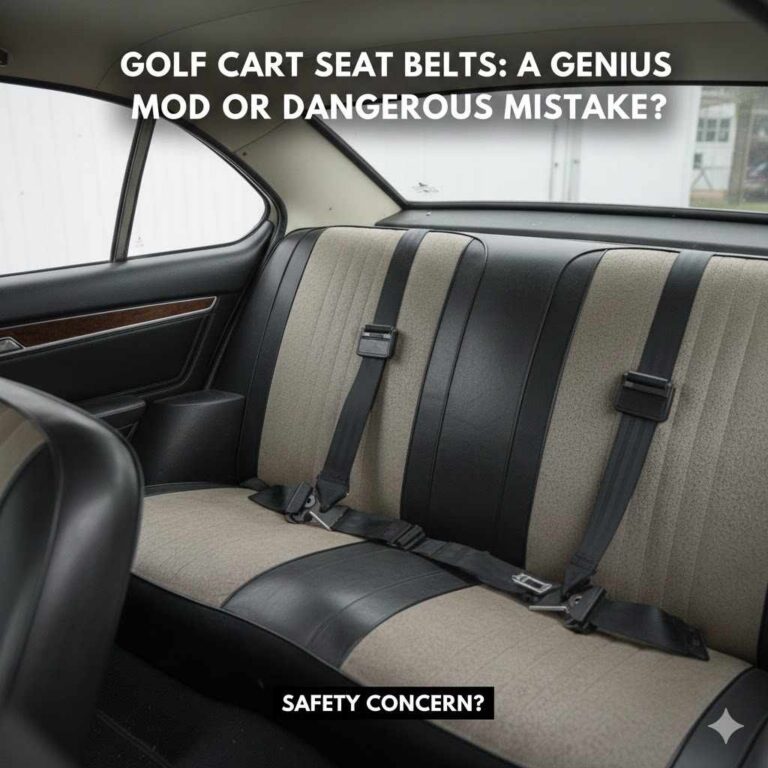Can I Surrender My Car in Chapter 13? Smart Moves
Yes, you can surrender your car in Chapter 13 bankruptcy. This process allows you to discharge the debt associated with the vehicle.
Surrendering a car in Chapter 13 bankruptcy can be a strategic move for those struggling with auto loans. Chapter 13 enables individuals to reorganize their debts while keeping valuable assets. If you find yourself unable to manage car payments, surrendering the vehicle may relieve financial pressure.
The court will handle the surrender process, allowing you to focus on rebuilding your credit. Understanding the implications is crucial, as it can affect your financial future. Explore your options and consult a bankruptcy attorney for tailored advice. Making informed decisions can help you regain control of your financial situation after bankruptcy.
Introduction To Chapter 13 And Car Loans
Chapter 13 bankruptcy helps many people manage their debts. This plan lets you keep your car while making payments. It offers a way to reorganize debts over three to five years.
Understanding the basics of Chapter 13 is important. It allows individuals to create a repayment plan. This plan can include car loans, making it easier to keep your vehicle.
Under bankruptcy protection, car loans can be managed differently. You may surrender your car if payments are too high. The court will guide how to handle your loan and vehicle.
Considering Car Surrender
Surrendering your car in Chapter 13 can be a smart choice. Many people face financial challenges. Keeping a car may add more stress. Here are some common reasons for surrendering:
- High monthly payments: Payments may be too much to handle.
- Negative equity: Owing more than the car is worth.
- Job loss: Reduced income makes car payments difficult.
- Car maintenance costs: Repairs can be expensive and overwhelming.
Surrendering a car can have financial implications. It may help reduce overall debt. This could lead to a lower monthly payment plan. A fresh start can feel less stressful.
The Surrender Process
Surrendering your car in Chapter 13 involves specific legal steps. First, inform your attorney about your decision. They will help you file necessary paperwork.
Next, review your current car loan details. It’s crucial to know the balance owed and your car’s value. This information helps in the surrender process.
Once everything is prepared, submit the surrender request through the court. The court will notify your lender about the surrender.
After the surrender, the lender will take your car. You may still owe money if the car’s value is less than the loan balance.
| Step | Action |
|---|---|
| 1 | Inform your attorney |
| 2 | Review loan details |
| 3 | Submit surrender request |
| 4 | Lender takes the car |
Alternatives To Surrender
Loan modification options can help you keep your car. This means changing your loan terms. You might lower your monthly payments. A lender may agree to this if you show financial need.
Redemption allows you to pay the current value of your car. This option can be cheaper than your remaining loan balance. Refinancing might help as well. You can take out a new loan to pay off the old one.
| Option | Description |
|---|---|
| Loan Modification | Changing terms to lower payments. |
| Redemption | Paying current value of the car. |
| Refinancing | Getting a new loan to pay off the old one. |
Impact On Credit Score
Surrendering a car in Chapter 13 can affect your credit score. The impact is often short-term. This means your score might drop significantly at first. Late payments before surrendering can also worsen the score.
Recovery from these effects can take time. After the bankruptcy, responsible credit use helps rebuild your score. Paying bills on time is crucial for long-term recovery. Keeping credit card balances low also supports improvement.
Dealing With Deficiency Balances
Understanding deficiency balances is crucial after surrendering a car in Chapter 13. A deficiency occurs when the sale of your car does not cover the loan balance. For instance, if you owe $15,000 and the car sells for $10,000, the deficiency is $5,000.
After surrender, creditors may pursue this remaining debt. They can seek a judgment against you to recover the deficiency balance. It’s important to know that not all debts are treated the same in bankruptcy.
Managing this remaining debt can involve several options:
- Negotiating a settlement with the creditor.
- Seeking a payment plan that fits your budget.
- Filing for bankruptcy if debts become unmanageable.
Smart Moves Before Surrender
Before deciding to surrender your car, seeking legal counsel is crucial. A lawyer can help you understand your options. They provide guidance on the Chapter 13 process and its implications.
Evaluating your financial situation is equally important. List all your debts and assets. Understand your monthly income and expenses. This assessment helps in making an informed decision.
Consider the value of your car. Is it worth keeping? A lawyer can help weigh the benefits against the costs. This will guide you in determining the best path forward.
Life After Car Surrender
Life after surrendering a car can be challenging. Finding transportation alternatives is essential. Public transport is a great option. Buses and trains can help you move around easily.
Consider ride-sharing services too. Apps like Uber and Lyft make travel simple. Bicycles are also a good choice for short distances. Walking is always an option for nearby places.
Rebuilding financial stability is crucial after surrendering a car. Create a budget to manage expenses. Prioritize essential costs like housing and food. Look for ways to increase income, such as part-time jobs.
Carpooling can save money and help meet new people. Join local community groups for support. Sharing rides can reduce travel costs significantly.
Frequently Asked Questions
Can I Surrender My Car During Chapter 13?
Yes, you can surrender your car in Chapter 13 bankruptcy. This option allows you to eliminate car payments while still discharging other debts. Once you surrender, the car lender will repossess the vehicle. It’s essential to inform your attorney about this decision for proper guidance.
What Happens To My Car Loan In Chapter 13?
In Chapter 13, your car loan can be restructured. You may reduce the payment amount and extend the loan term. However, if you choose to surrender the car, you will no longer be responsible for the remaining loan balance. This can relieve financial stress significantly.
Will I Get A Refund If I Surrender My Car?
Typically, you won’t receive a refund after surrendering your car. The lender will sell the vehicle to recover losses. If the sale price is less than what you owe, the remaining debt might be discharged in bankruptcy. This process can help alleviate financial burdens.
How Does Surrendering Affect My Credit Score?
Surrendering your car will negatively impact your credit score. It is recorded as a repossession, which remains on your credit report. However, filing for Chapter 13 can also help rebuild your credit over time. Consistent payments on other debts can improve your creditworthiness.
Conclusion
Surrendering your car in Chapter 13 can be a viable option for many. It allows you to regain financial control while addressing your debts. Understanding the process is crucial. Always consult with a bankruptcy attorney to explore your options. They can guide you through the intricacies and ensure the best outcome for your situation.







